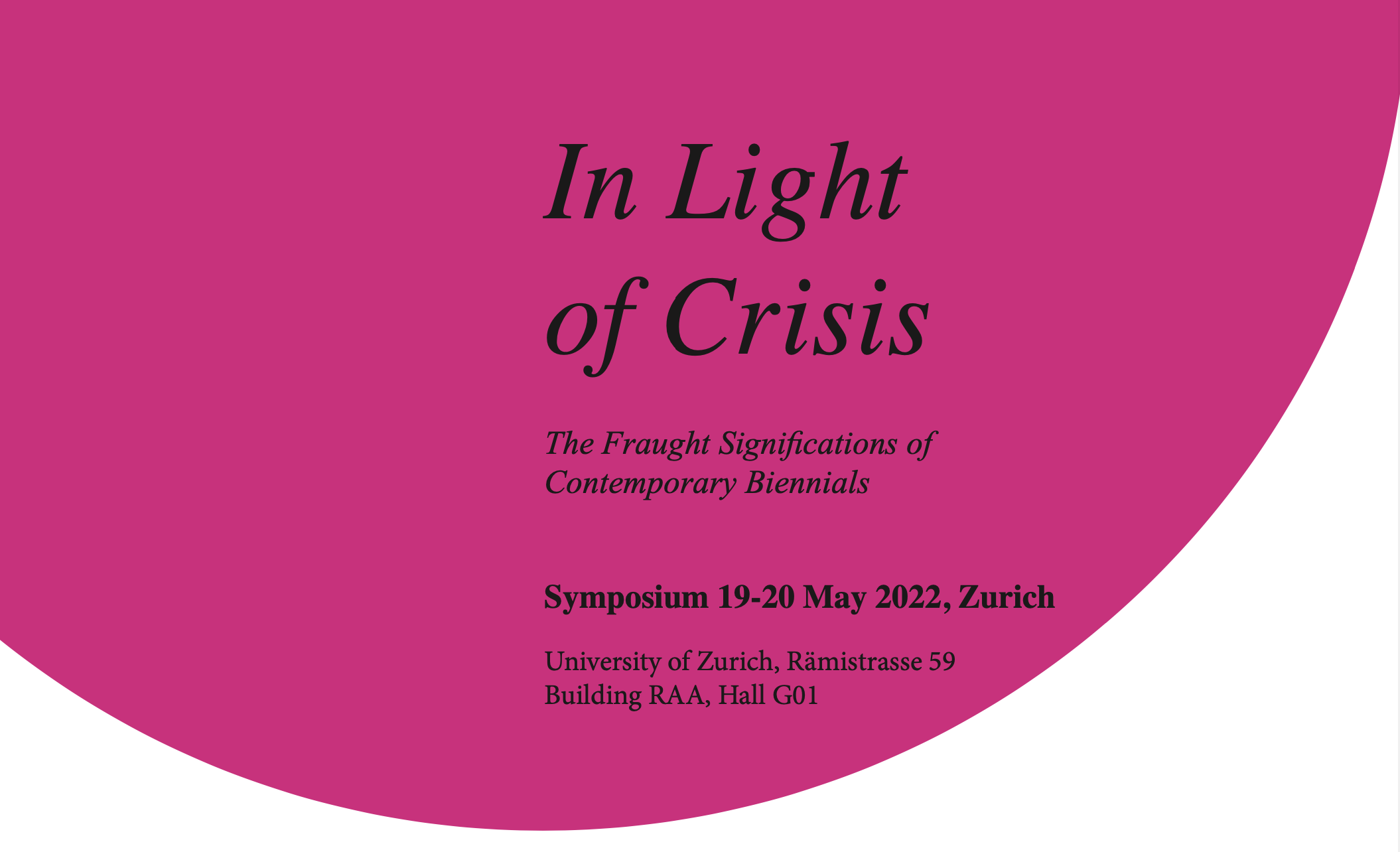Symposium: In Light of Crisis. The Fraught Significations of Contemporary Biennials
19-20 May 2022,
University of Zurich,
Rämistrasse 59 Building RAA, Hall G01

Organizers: Ifigeneia Dimitrakou,Virginia Marano, Charlotte Matter, Julie Ren, Rosa Sancarlo
Keynote speaker: Varsha Nair, Womanifesto
Presenters (in alphabetical order): Maria Bremer, Ilaria Conti, Adam Jasper, Adam Kaasa, Panos Kompatsiaris, Adrian Lahoud, Julie Ren, Jeannine Tang Divya Tolia-Kelly
The symposium “In Light of Crisis: The Fraught Significations of Contemporary Biennials” proposes an intensive exchange about how to understand art and architecture biennials through the lens of crisis. Rather than operating in the shadow of assumptions about what crisis might represent, we seek to scrutinize crisis more productively, in terms of the biennial in crisis, its crisis of meaning and the crises of representation (Cf. Verhagen, 2012; Oguibe, 2004; Dimitrakaki, 2012) as well as the context of crises, the distances that crisis creates in terms of the translation of reality in creative production (Cramerotti and Mele, 2021) or the normalization of crisis as an unending precarious- ness haunting everyday life (Berlant, 2011; Battacharyya, 2015; Hall, 2019). As a field-configuring event, proliferating in cities around the world from Kampala to Kobe, the biennial offers a particular lens through which to analyze these different senses of crisis. Biennials often represent a cultural frontier, featuring work not yet acquired
by any museum, often specially commissioned and curated for each setting with intensive scrutiny. At times, they champion socio-political issues like indigenous rights, climate change, and economic and po- litical crises, and they are increasingly redressing problems of cultural representation (Filipovic, Ovstebo and Van Hal, 2010; Ren, 2021). Nonetheless, the attempt to inspire public debate is coupled with the struggle to reconcile critical aims of these events with the political economy of elite circuits of curators, artists/architects, and writers that in turn breed the creative and financial capital necessary to sustain their cultural value. These events inspire anticipation, speculation and disdain, and new actors must constantly pursue questions of their own relevance (Wah, 2021). The inflation of capital involved in these mar- kets is also coupled with exploitative practices employing precarious labor, and often form convenient alliances with tourism and real estate industries.
Against this background, the symposium invites experts and research- ers to reflect on the following questions: What does the biennial do (Lind and Rujoio, 2019), to whom and at what cost? What does this contribute to our understanding of the biennial format in crisis or the context of crises, and how are these entwined?
This symposium is possible with support from the UZH Graduate Research Campus, Chair for Modern and Contemporary Art, Institute of Art History and Social and Cultural Geography Unit, Department of Geography